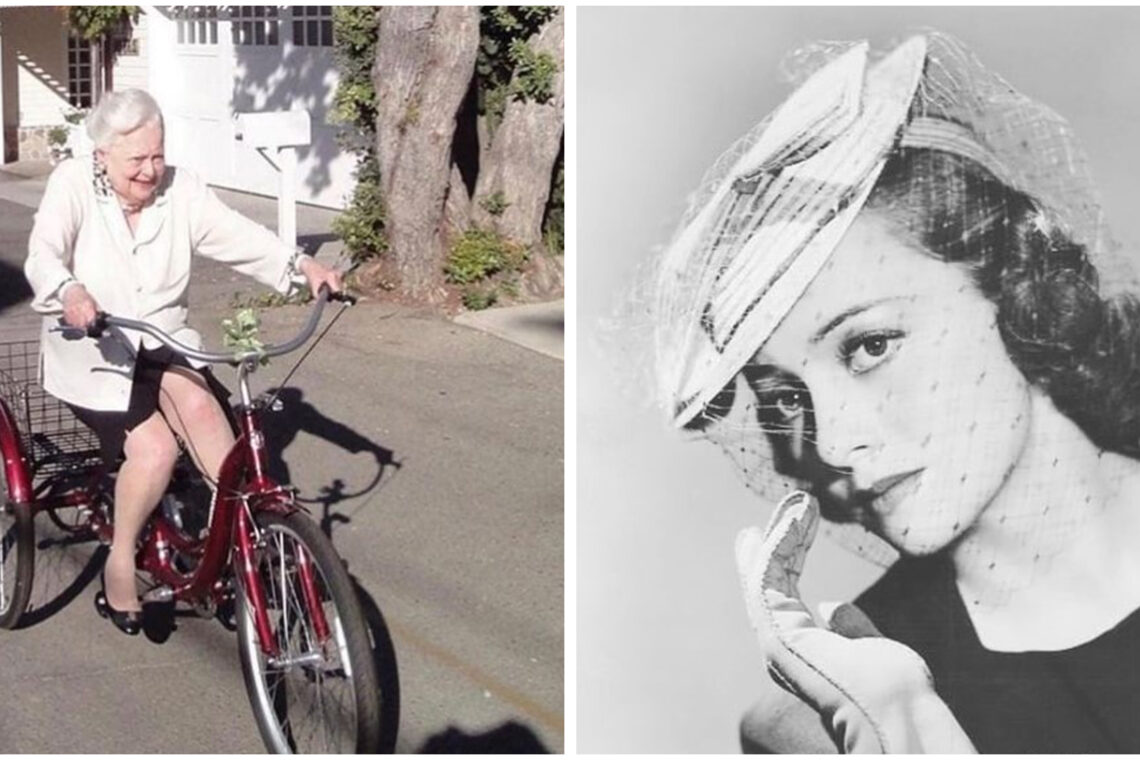
Olivia de Havilland may not be in the limelight as she once was, yet her influence and legacy endure in the hearts of many fans. As her 104th birthday approaches, it’s a fitting time to reflect on her remarkable life and career, which have left an indelible mark on the film industry.
Born in 1916 in Tokyo to British parents, de Havilland’s family relocated to California when she was a young child. Her early exposure to the arts, especially theater, ignited a passion for acting that would define her life. She first graced the silver screen in the late 1930s, swiftly capturing the hearts of audiences with her charm, talent, and grace. However, it was her role as Melanie Hamilton in the classic film “Gone With the Wind,” released in 1939, that catapulted her to legendary status.
Throughout her impressive career, de Havilland appeared in nearly 50 feature films, showcasing her versatility across various genres, from historical dramas to romantic comedies. Her performances were marked by a profound emotional depth that resonated with viewers, allowing her to portray characters with authenticity and nuance. This skill earned her critical acclaim and solidified her place among the most esteemed actresses of her time.
Her work did not go unnoticed by the industry. Over the years, de Havilland received five Academy Award nominations, a testament to her exceptional talent. She won two Oscars for Best Actress, first for her role in “To Each His Own” in 1946, and again for “The Heiress” in 1949. These accolades not only highlighted her abilities as a performer but also positioned her as a trailblazer for future generations of actors.
De Havilland’s contributions to cinema extended beyond her on-screen performances. She was a vocal advocate for the rights of actors within the film industry, particularly regarding contract disputes. In the early 1940s, she famously challenged the oppressive studio system, which sought to control the careers and personal lives of actors. This courageous stand led to a landmark legal victory, known as the “De Havilland Law,” which transformed the landscape for performers in Hollywood. Her fight for fair treatment and autonomy paved the way for future actors to negotiate better terms and assert their rights in an industry that often prioritized profit over people.
In the 1950s, de Havilland made a significant life choice, moving to Paris, where she embraced a quieter life away from the Hollywood spotlight. Although she officially retired from acting in 1988, she remained engaged with the film community. De Havilland’s passion for cinema persisted, and she continued to be celebrated for her contributions and impact on the art form.
Her accolades extend beyond the realm of acting. In recognition of her contributions to the arts and her philanthropic efforts, de Havilland received numerous honors throughout her life. She was awarded the Légion d’honneur, a prestigious French order established by Napoleon Bonaparte, highlighting her significance not just in Hollywood but also in international culture. Furthermore, her appointment as a Dame Commander of the Order of the British Empire reflects her status as a respected figure in both the United Kingdom and the film world.
Even in her later years, de Havilland continued to inspire those around her. A recent photograph captured her riding a bicycle during a time of quarantine due to COVID-19, a reminder of her indomitable spirit and zest for life. Such images evoke a sense of joy and resilience, showcasing her ability to adapt to changing circumstances while maintaining a sense of adventure.
Olivia de Havilland represents a connection to a bygone era of cinema, a time when stars were not only defined by their on-screen personas but also by their off-screen courage and integrity. As Hollywood evolves, it often feels as though the industry is missing the kind of enduring talent that defined the Golden Age. Icons like de Havilland remind us of the artistry and passion that once flourished in film, leaving behind a legacy that transcends time.
In celebrating her life and achievements, we are reminded of the power of storytelling and the role that actors play in shaping our cultural narratives. De Havilland’s performances continue to resonate, as they encapsulate the spirit of a time when cinema was revered as a high art form. Her ability to evoke empathy and connection through her characters serves as a benchmark for aspiring actors, reminding them of the profound impact they can have on audiences.
As she approaches her 104th birthday, Olivia de Havilland stands as a testament to the enduring nature of talent, resilience, and artistry. Her journey from a young actress in California to a revered figure in the cinematic landscape is a story worth honoring. As we reflect on her contributions, it is clear that her legacy will continue to inspire generations to come, reminding us all of the magic of film and the extraordinary individuals who bring stories to life.